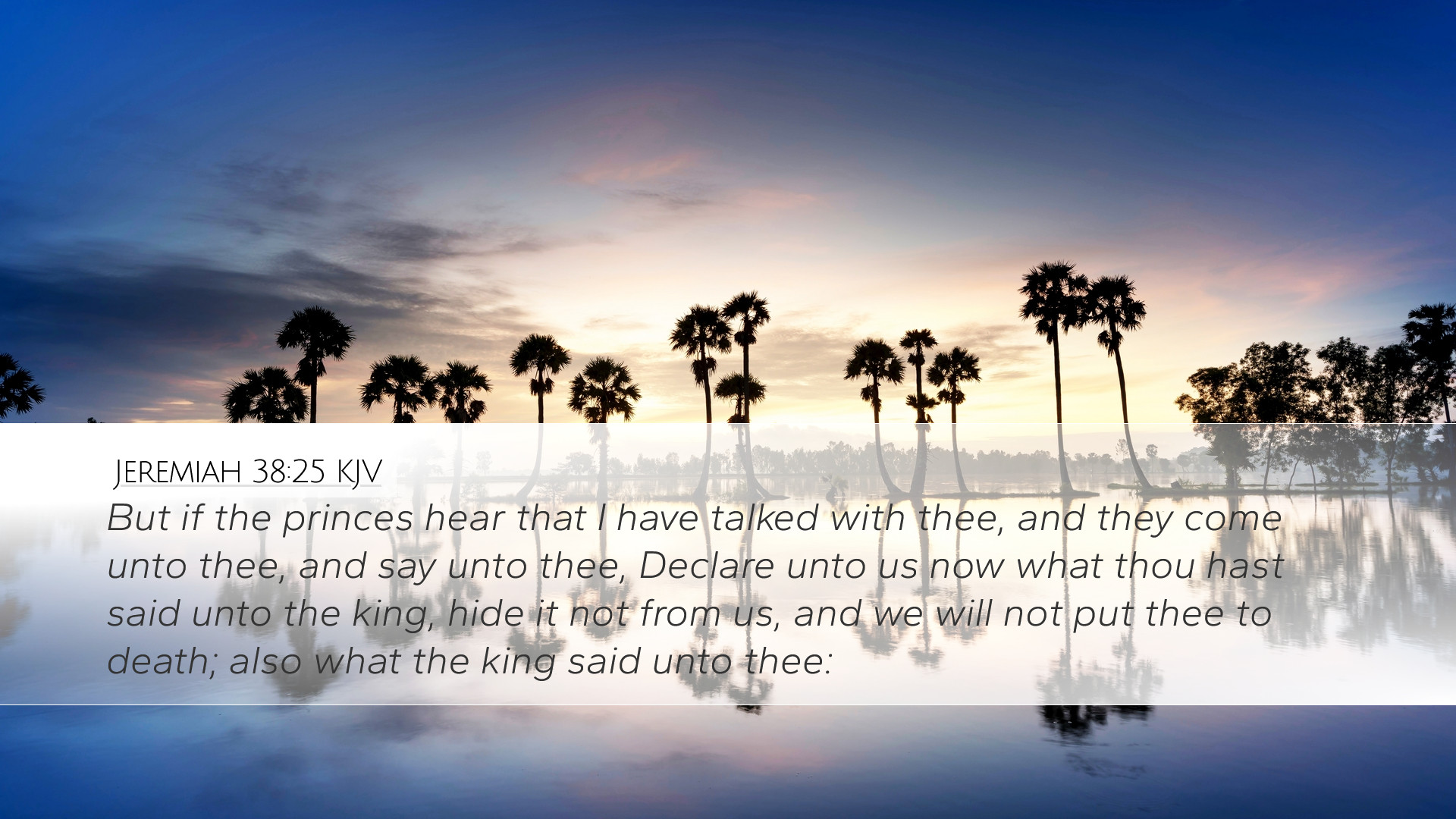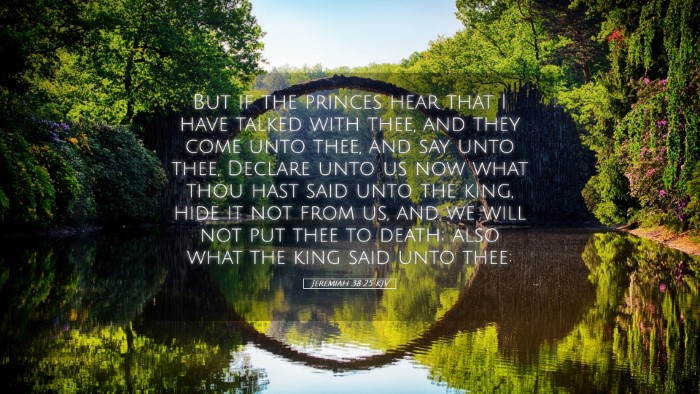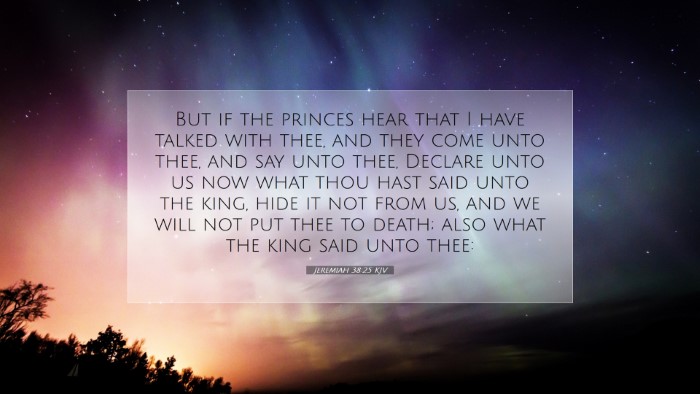Commentary on Jeremiah 38:25
Verse Context: Jeremiah 38:25 is set against the backdrop of a tumultuous period in Judah's history. As the Babylonian siege closes in, the prophet Jeremiah faces intense pressure from various factions within the city. This verse captures a pivotal moment highlighting the struggle for truth and loyalty amidst imminent destruction.
Verse Analysis
In this verse, we find a poignant exchange between Jeremiah, who is imprisoned for his prophetic messages, and the leaders seeking to determine the fate of the prophet and the people. The verse reads:
"But if the princes hear that I have talked with thee, and they come unto thee, and say unto thee, Declare unto us now what thou hast said unto the king, and what the king said unto thee; hide it not from us, and we will put thee to death: if we know to the contrary."
The Desperation of Judah's Leaders
Jeremiah's Anticipation of Consequences: The unease expressed by Jeremiah reveals the gravity of the situation. His awareness of the princes' potential reaction underscores the tension that saturates this period; leaders were not merely concerned for their positions but were also acutely aware of the aversion towards the truth of God's message. Matthew Henry articulates this by suggesting that Jeremiah's foresight of conflict stemmed from a profound understanding of human nature's propensity to shy away from uncomfortable truths.
The Fear of Truth
The Princes' Threat: This verse depicts a deeper underlying truth about the nature of leadership. The princes, cloaked in authority, exhibit a fearful disposition towards the revelation of God’s will as communicated through Jeremiah. Albert Barnes remarks, “They feared the truth that Jeremiah spoke, as it would contrast starkly against the popular narratives of strength and resilience that they wished to maintain before the populace.” Their request to Jeremiah paints a picture of how leadership often grapples with maintaining a facade, even against detrimental outcomes.
The Role of Prophetic Voices
A Divine Mandate: Jeremiah's role as a prophet cannot be understated. The pressures he treads expose his unwavering commitment to delivering God's message, regardless of personal cost. Adam Clarke notes, “A true prophet stands on the precipice of persecution, laboring to proclaim what many would rather silence.” This highlights the broader theme of prophetic integrity amidst societal disarray.
- Prophetic Integrity: Emphasizing the necessity for bold teaching in the face of adversity.
- Leadership's Moral Responsibility: Exploring the ethical implications for leaders who choose to suppress truth.
- Consequences of Silence: Reflecting on the impacts of a community that turns a deaf ear to divine guidance.
Theological Implications
Jeremiah 38:25 encapsulates critical theological themes: the relationship between the divine and human agency, the loyalty to God’s truth in precarious circumstances, and the consequences of leadership choices. The commitment of the prophet to the truth serves as a model for contemporary believers, especially those in pastoral roles.
God’s Sovereignty and Human Agency
The Divine Plan: Analysts like Barnes elucidate that despite the apparent chaos, God’s sovereign plan unfolds even through the actions of disobedient leaders. This interplay indicates that God’s will can manifest through human choices, even when those choices contravene His laws.” Thus, for pastors and theologians, this understanding calls for an acceptance of the complexity of divine providence.”
The Cost of Discipleship
Embracing Suffering: The true cost associated with following God’s calling emerges throughout Jeremiah’s experience. His steadfastness presents a model of discipleship characterized by suffering and perseverance. The text invites reflection on how modern followers of Christ interpret the call to bear their cross, even in hostile spaces.”
Conclusion
Jeremiah 38:25 evokes a profound exploration of truth, fear, and divine prompting particularly relevant to leaders and ministers today. The commentary reveals the urgency for those in ministry to stand resolute against societal pressures, to champion transparency, and to seek God’s truth, irrespective of the consequences. The story of Jeremiah timelessly challenges us at the intersection of faith, leadership, and truth-telling in an often hostile world.


